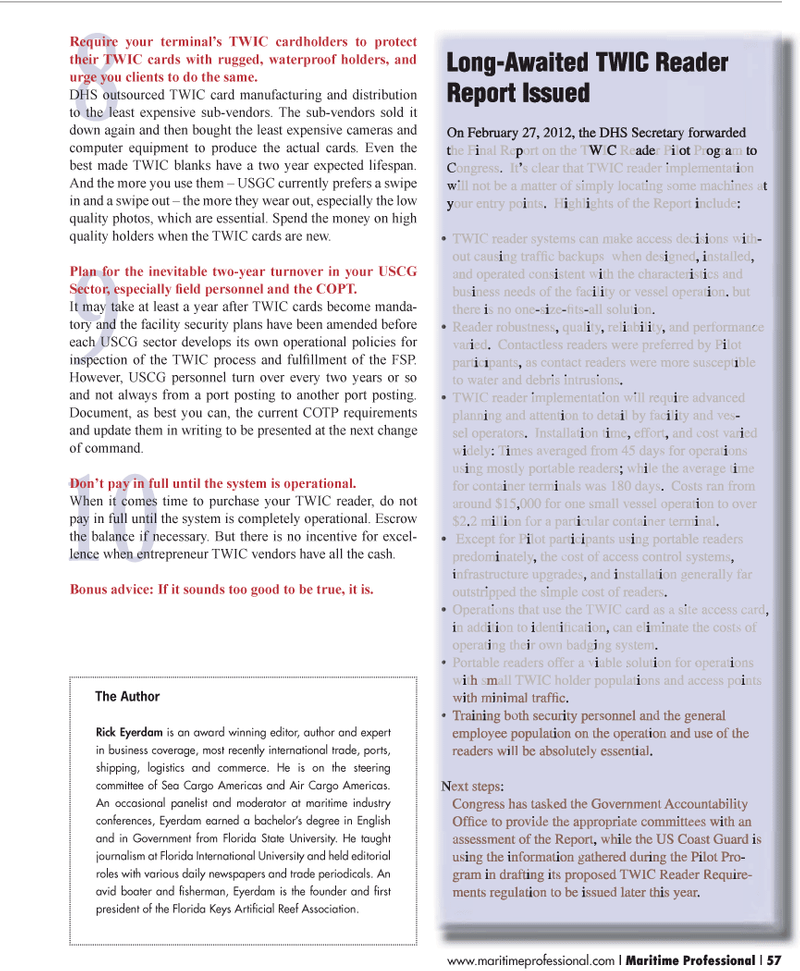
Page 57: of Maritime Logistics Professional Magazine (Q1 2012)
Training & Maritime Security
Read this page in Pdf, Flash or Html5 edition of Q1 2012 Maritime Logistics Professional Magazine
9810Require your terminal?s TWIC cardholders to protect their TWIC cards with rugged, waterproof holders, and urge you clients to do the same. DHS outsourced TWIC card manufacturing and distribution tothe least expensive sub-vendors. The sub-vendors sold it down again and then bought the least expensive cameras and computer equipment to produce the actual cards. Even the best made TWIC blanks have a two year expected lifespan. And the more you use them ? USGC currently prefers a swipe in and a swipe out ? the more they wear out, especially the low quality photos, which are essential. Spend the money on high quality holders when the TWIC cards are new. Plan for the inevitable two-year turnover in your USCG Sector, especially Þ eld personnel and the COPT. It may take at least a year after TWIC cards become manda- toryand the facility security plans have been amended before each USCG sector develops its own operational policies for inspection of the TWIC process and ful Þ llment of the FSP. However, USCG personnel turn over every two years or so and not always from a port posting to another port posting. Document, as best you can, the current COTP requirements and update them in writing to be presented at the next change of command.Don?t pay in full until the system is operational.When it comes time to purchase your TWIC reader, do not payin full until the system is completely operational. Escrow the balance if necessary. But there is no incentive for excel- lence when entrepreneur TWIC vendors have all the cash. Bonus advice: If it sounds too good to be true, it is. The AuthorRick Eyerdam is an award winning editor, author and expert in business coverage, most recently international trade, ports, shipping, logistics and commerce. He is on the steering committee of Sea Cargo Americas and Air Cargo Americas. An occasional panelist and moderator at maritime industry conferences, Eyerdam earned a bachelors degree in English and in Government from Florida State University. He taught journalism at Florida International University and held editorial roles with various daily newspapers and trade periodicals. An avid boater and ? sherman, Eyerdam is the founder and ? rst president of the Florida Keys Arti? cial Reef Association. www.maritimeprofessional.com | Maritime Professional | 57

 56
56

 58
58
